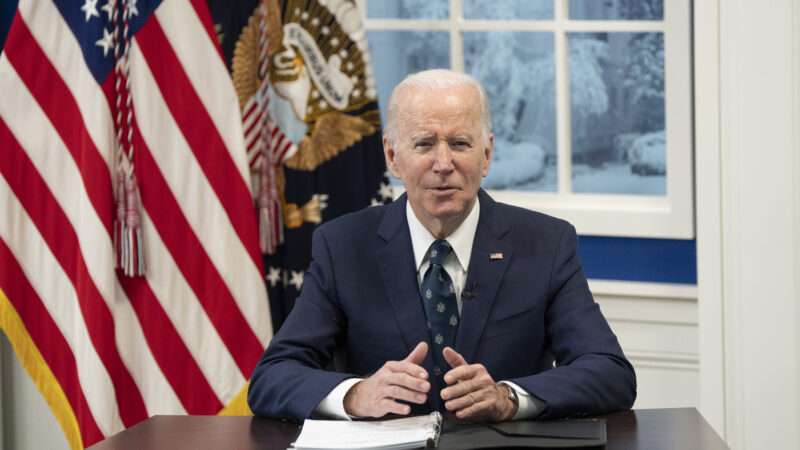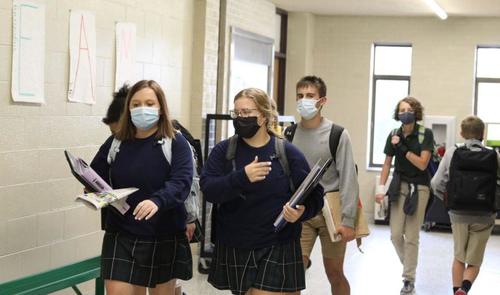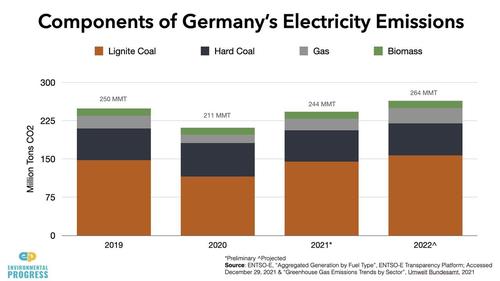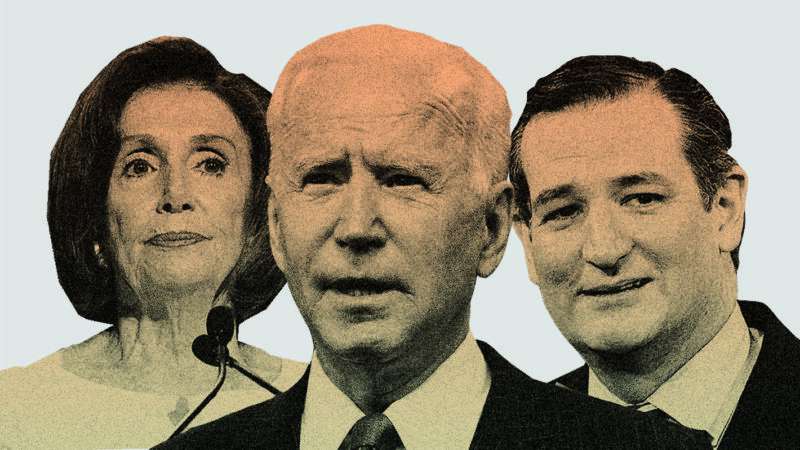
President Joe Biden and his administration are moving to fight inflation in the meat sector. But the government solutions he’s proposing to what is largely a government-created calamity will likely only serve to deepen existing problems.
Many of the meat-industry problems the Biden administration identifies as in need of fixing are very real. For example, the administration says meat prices are through the roof. That’s true. The administration says the meatpacking industry is highly consolidated, with just four giant companies responsible for slaughtering and processing nearly 7 out of every 8 pounds of beef (and slightly lower amounts of pork and poultry) we eat every year. That’s true, too. (It was also largely true 20 years ago and 100 years ago.) The Biden administration has also argued large meatpackers have been busy “raising prices, underpaying farmers—and tripling their profit margins during the pandemic.” Also true.
The Biden administration believes meat prices are sky high due largely to this industry consolidation and lack of competition.
“When dominant middlemen control so much of the supply chain, they can increase their own profits at the expense of both farmers—who make less—and consumers—who pay more,” the administration announced this week. “Most farmers now have little or no choice of buyer for their product and little leverage to negotiate, causing their share of every dollar spent on food to decline.”
But that analysis conveniently ignores the role of the federal government in creating and maintaining the very system—the thing the administration says eliminates the choices and leverage farmers and ranchers should have—that the Biden administration is decrying loudly.
While the pandemic has demonstrated to regular Americans the lack of resiliency among the nation’s largest meat suppliers, I explained in 2020, “the real obstacle that’s preventing ranchers and farmers that utilize these facilities from supplying more meat to more Americans is an outdated federal law that props up the large processors while preventing local meat producers from selling steaks, roasts, and other cuts of meat to consumers in grocery stores, at farmers’ markets, and elsewhere in their communities.”
This is true generally because farmers and ranchers who want to sell their meat commercially (or for it to be re-sold) in this country must have their livestock slaughtered in USDA-inspected (or state equivalent) slaughter facilities, where an inspector must be present and inspect every animal that’s slaughtered. In order to be sold commercially, meat from those same animals also must be processed (cut into steaks, ground up, cured, etc.) in a USDA-inspected processing facility. There’s a shortage of slaughter and processing facilities available to most small farmers and ranchers, and many plants are owned by a handful of large companies that don’t cater to those farmers and ranchers. As all this suggests, the current system poses a giant hurdle to many small farmers and ranchers.
Farmers may opt out of this system by having their animals slaughtered and processed in a plant that’s not inspected by the USDA. But those farmers can’t sell meat from those animals anywhere commercially. In fact, most farmers who have their animals slaughtered and processed in a state-inspected plant can’t even sell inspected meat from those animals across state lines.
As a fix, the Biden administration proposes, under a wordy header announced this week—the Biden-Harris Administration’s Action Plan for a Fairer, More Competitive, and More Resilient Meat and Poultry Supply Chain—to give $1 billion to smaller meat processors so that they can ramp up their production efforts, which would in theory provide farmers and ranchers with more choices for slaughter and processing. The plan also includes other elements, including “launching a new portal to allow farmers and ranchers to report unfair trade practices by meatpackers.”
Will that make any difference? Don’t hold your breath.
The USDA has been aware of many of the aforementioned problems with its meat-inspection scheme for decades. As I explain in my book, Biting the Hands that Feed Us: How Fewer, Smarter Laws Would Make Our Food System More Sustainable, when the agency commissioned a study 10 years ago to look at ways to streamline these regulations, the authors of the study concluded “that no one with the USDA or . . . working as professionals within the meat industry believe[s] that streamlining regulations will ever occur.”
Righteous pessimism hasn’t stopped people who care about small farmers and the livestock they raise from trying to come up with various fixes. The PRIME Act, a tremendous bill that has repeatedly failed to pass Congress, would, I explained in a piece in the The Hill in 2018, “provide states with the option to regulate livestock slaughter and sale within their borders.” Local solutions exist, too, but the federal government largely ignores or seeks to undermine them. States such as Wyoming and Colorado that have sought to use federal law to foster more local competition have bumped up against threats from overzealous USDA bureaucrats.
After Joe Biden’s clear election victory, and before he took office, I was one of many critics who argued his administration appeared to be setting itself up to do little more than recreate the food-policy mistakes of past administrations. In that respect, the Biden administration certainly hasn’t disappointed.
The post Biden's Plan To Address Meat-Price Inflation Ignores That Federal Intervention Caused the Problem appeared first on Reason.com.
from Latest – Reason.com https://ift.tt/3r28ysz
via IFTTT






